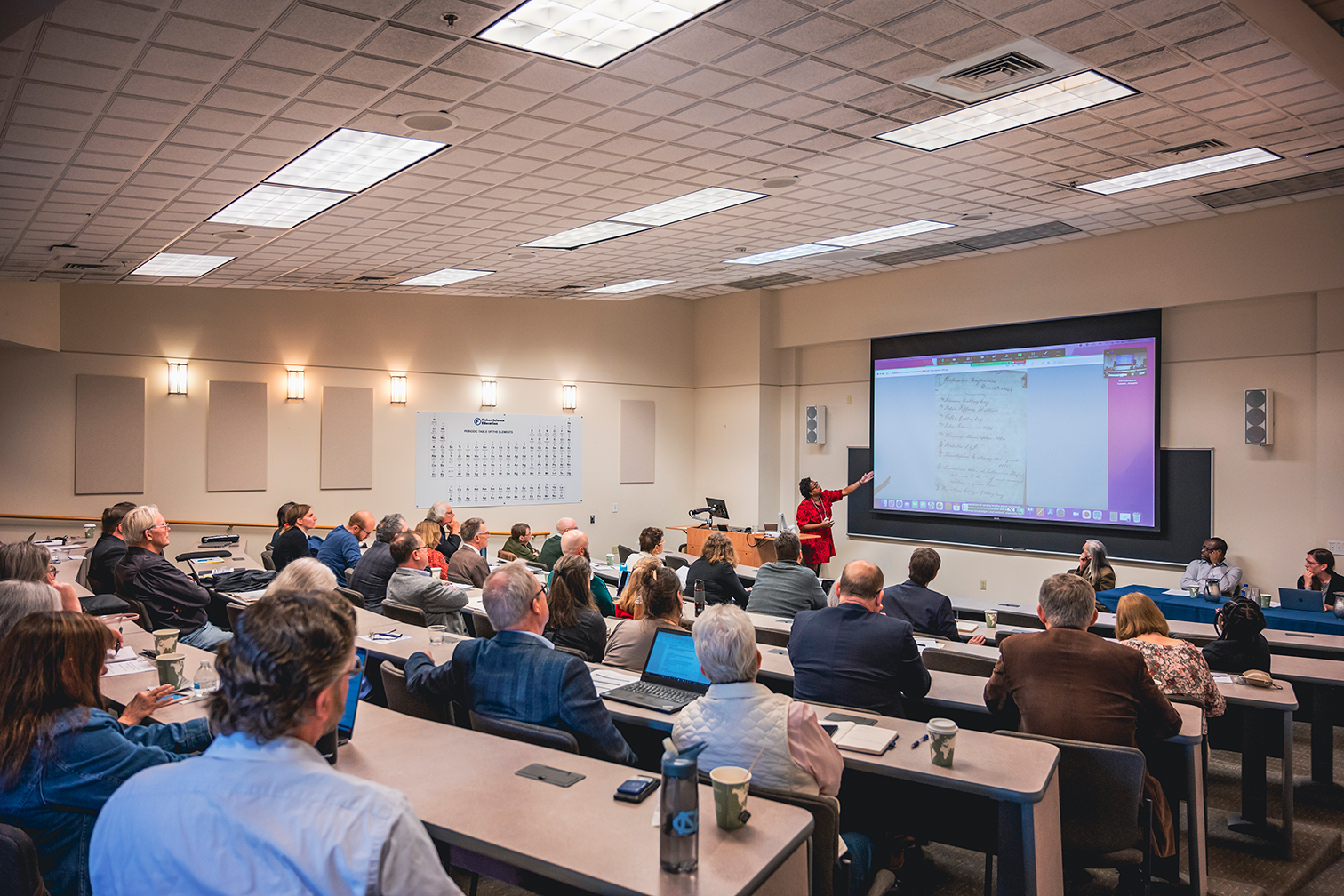
By Graeme Olson ’24
On Saturday, November 5, 2022, I attended the symposium Race, Slavery, and Land: Moravian Legacies in a Global Context, 1722–2022 and had the opportunity to listen to leading historians, anthropologists, and political scientists from around the world regarding an uncomfortable topic in our nation’s history. They discussed slavery and the Moravian Church’s relationship with the institution. Scholars from as far away as the Caribbean and Germany had interesting perspectives to share. I was working at the symposium as a student assistant alongside Neema Mburu ’24 and Nathan Pynchon ’26, and we had interesting conversations about the importance of the topic and why we were there to discuss it. Here are a few of my takeaways from the symposium.
What were early Moravians’ attitudes toward slavery?
We think of Moravians as a very tolerant people historically, almost equivalent to Quakers in that regard. But the 18th century was a much different time, so what did the Moravian leaders of that time think of slavery? The answer is complicated, but I learned a great deal from the presentation “A.G. Spangenberg’s Ambiguous Attitude towards Chattel Slavery.” As a leader in the Moravian Church, Spangenberg succeeded Count Nicolaus Zinzendorf. He was upset when he saw masters treating their slaves poorly, believing it immoral; however, he also believed that The Bible could be used to justify slavery. He thought that God had ordained people to have certain stations in life, and that masters and slaves were simply meant to be in those roles. Zinzendorf shared similar thoughts to those of his successor. He believed that Jesus was a slave and that the Moravian people were slaves to God. And so, Moravian leaders of the 18th century saw some value in being a slave, however horribly misguided we may view that today.
Why is this topic still important today?
The terrible injustice that was slavery ended only 157 years ago in American history, but racism continues. Following the common refrain among historians, we need to learn from the past. We need to learn how to treat people better. Zinzendorf, Spangenberg, and others in the Moravian community were devout adherents of their faith, and there’s no harm in that, but it is harmful when people use faith to justify putting others in shackles. It is a bit heartbreaking to acknowledge this piece of early Moravian history, but as a student of history, it is my job to learn.
For additional student commentary, read “Moravian Symposium on Race, Slavery, and Land Examines History of Black Moravian Minister,” by Nathan Pynchon ’26, which appeared in the November 17, 2022, issue of the Comenian.
Wish you had attended the symposium? View recordings of the presentations.